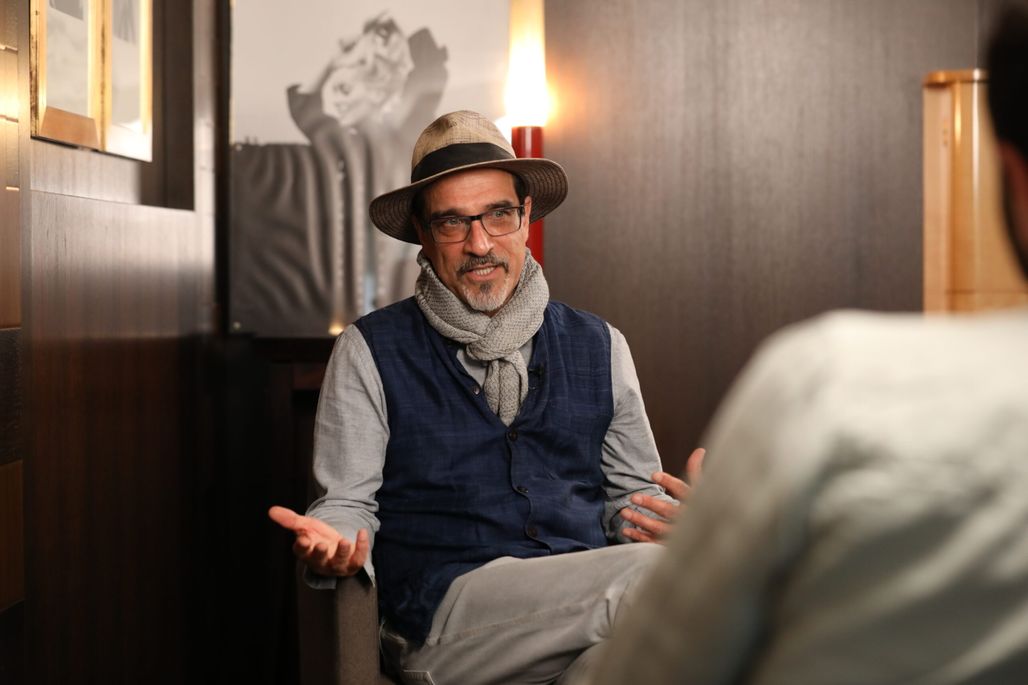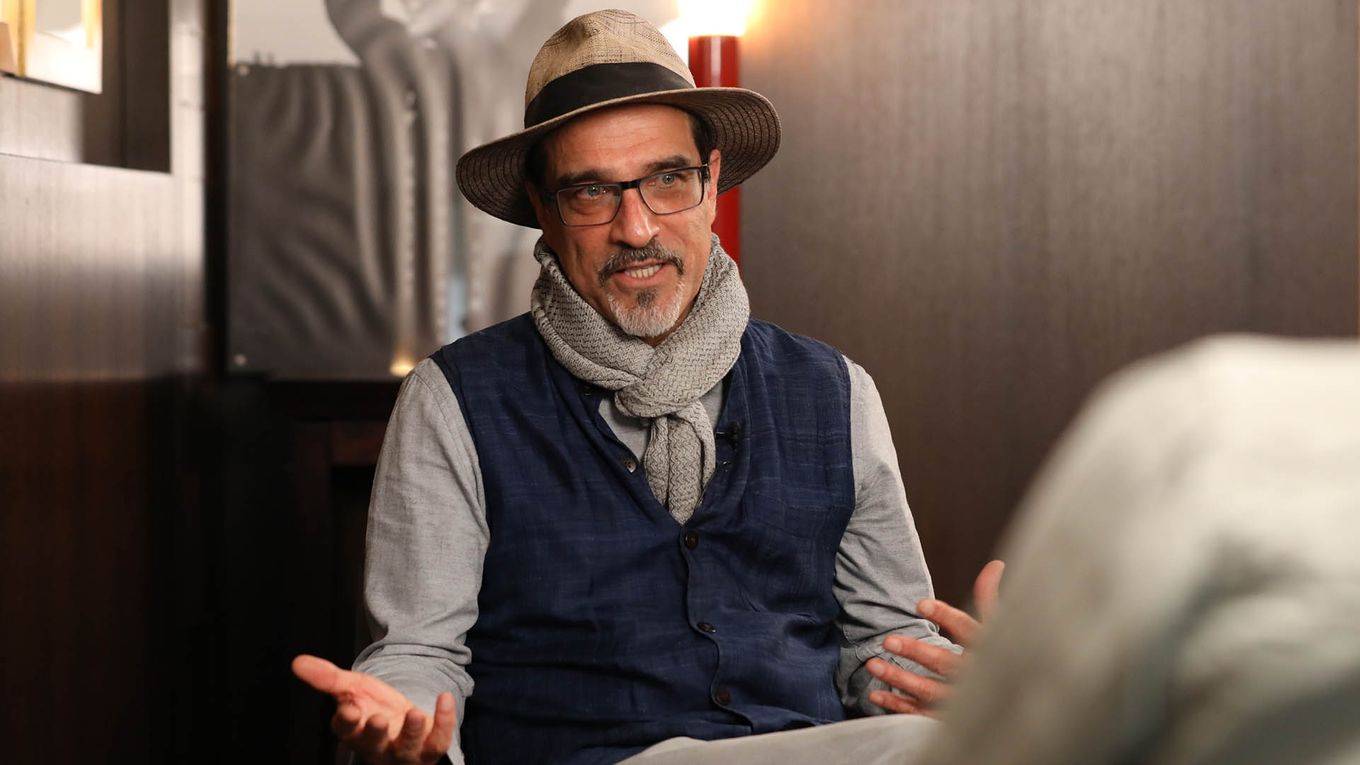
Meet Atiq Rahimi, Member of the Feature Film Jury

Born into a “wealthy, peaceful, and bourgeois” Afghan family, Atiq Rahimi‘s life changed at the age of 11 following the coup d’état in Afghanistan and the arrest of his father. Since then, Atiq Rahimi has continually questioned injustice, censorship, and prohibition in his works both in writing and on screen. An interview with the member of the Feature Films Jury, who opens up about his creative process.
What inspires you in life when writing a book or a screenplay?
Life, simply. It’s a material. I believe that for a novel, it’s always a connection to life, but not immediate life. Rather something I have experienced, seen, imagined, maybe dreamed. Then, I need some time to put it on paper. Cinema is different. It takes even more time. What we put in is life, contingencies, happiness, misfortunes. In my mind, I wait for the moment when material things become immaterial, that’s when creation begins. Today, I’m talking with you, I can’t immediately write because you’re in front of me. This conversation needs to enter my mind, to become somewhat immaterial, something that no longer exists.
All art is the moment when absence begins.
And the filming process?
When I write, I pull out the few remaining hairs I have. Whereas in cinema, it’s simple. Because around me, there is a whole team with whom I share my uncertainties, my anger, my joys, my happiness on the set. We become children again. We are the king, the child king. You’re there in your director’s chair, giving orders, shouting, hitting, and so on. It’s like a kind of Lego. The ego. In cinema, our ego triumphs over everything to some extent.
Even in writing?
Yes, because even in writing, we imagine the actors, even if in the end, it won’t be them. We have images in our heads, the cinematographer, the sound, the music, all of that when we write. We’re not alone. But of course, I isolate myself to write. And there, that ego takes a serious blow. I can’t share my doubts about a word with anyone. I try to construct a sentence for a day, sometimes two.
Do you have a writing routine?
I write all the time. I think that even when I’m here talking, there’s a part of me that’s writing… When I asked Jean-Claude Carrière, my master, my friend, and spiritual father, how he managed to work on so many projects, he would always reply: “I have invisible workers.” He passed on these invisible workers to me as an inheritance.
Do you compartmentalize your brain?
Yes, that’s it, they’re partitions. For example, right now, I’m working on three projects: an animated film, a more realistic film, and a screenplay that I’m writing for someone else. So each project has its room in my house in a small village where I live. When I enter the room, I settle in, and the brain also opens and closes its own. In the morning, I work on one project, in the afternoon on another. When I change places, everything I had thought before about the other project seems to no longer exist. Then, I go for a walk, prepare my dinner, and go to another room until midnight to work on the third project. It’s really strange, though.
Is there an Afghan cinema?
We can’t talk about Afghan cinema because we haven’t had time to create a cinematic identity. For the filming of my film Earth and Ashes in 2003,We can’t talk about Afghan cinema because we haven’t had time to create a cinematic identity. For the filming of my film “Earth and Ashes” in 2003, for example, it went well because the country had just emerged from the terror of the Taliban for the first time. There was a kind of energy, a return to life. Then, for The Patience Stone (2013), I didn’t have that chance. I filmed in Casablanca, but for the outdoor scenes, I wanted to shoot in Afghanistan because you can’t find the mountains of Kabul anywhere else. I went with a very small team, and I told everyone that I was making a documentary. Even so, I was threatened. For my next film, I shot it in Rwanda, in search of that thing that haunts me, which touches upon the disaster of war, the mechanism of hatred. Love has its literature, but there are very few books about hatred, about its birth. At what moment does it seize us?
I lost my elder brother in the war while I was in France. I couldn’t mourn, and this mourning haunts me. But now, I would like to eventually move on from that and tell another story.
What story would you like to tell?
The absurdity of human beings, what is funnier. Whether it’s in love, even in war, in social events, and so on. It’s a subject that deeply affects me.
You must get along well with Ruben Östlund then!
Yes, of course. In fact, I told him on the first day, “I resent you.” He asked, “Why?” Because I had been writing a film with a friend for two years that touched on the same themes as “Force Majeure.” We’ll have to start over!



